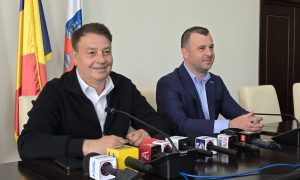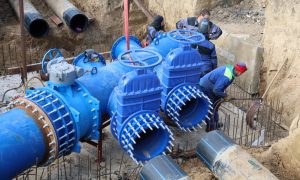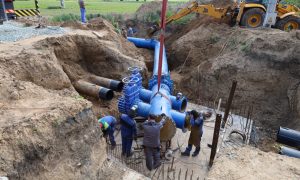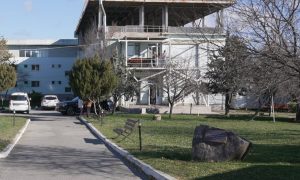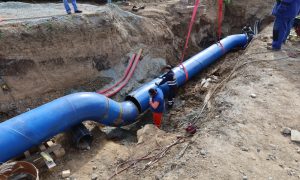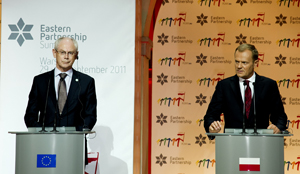
Herman Van Rompuy and Donald Tusk, Prime Minister of
Poland
© European Union, 2011
The Eastern Partnership summit held in Warsaw on 29 and 30 September registered a deepening in relations between the EU and its Eastern European partners and set new goals for the next two years.
„We are well on the way to concluding new and upgraded contractual relations with most of our partners,” said European Council President Herman Van Rompuy, who chaired the summit and, together with European Commission President José Manuel Barroso, represented the European Union. Most EU member states were also represented at the highest level, as were in general the six Eastern Partnership countries, Armenia, Azerbaijan, Belarus, Georgia, Moldova and Ukraine.
The summit welcomed the progress made so far, including the fact that there is more trade between the EU and its eastern partners than ever before. The negotiations on the EU-Ukraine…

Herman Van Rompuy and Donald Tusk, Prime Minister of
Poland
© European Union, 2011
The Eastern Partnership summit held in Warsaw on 29 and 30 September registered a deepening in relations between the EU and its Eastern European partners and set new goals for the next two years.
„We are well on the way to concluding new and upgraded contractual relations with most of our partners,” said European Council President Herman Van Rompuy, who chaired the summit and, together with European Commission President José Manuel Barroso, represented the European Union. Most EU member states were also represented at the highest level, as were in general the six Eastern Partnership countries, Armenia, Azerbaijan, Belarus, Georgia, Moldova and Ukraine.
The summit welcomed the progress made so far, including the fact that there is more trade between the EU and its eastern partners than ever before. The negotiations on the EU-Ukraine Association Agreement could be finalised before the end of 2011. If the conditions are in place, negotiations on a deep and comprehensive free trade area (DCFTA) could also start with Georgia and Moldova by the end of the year. Armenia for its part is making progress to become ready for DCFTA negotiations.
The aim of the Eastern Partnership, launched in 2009, is to promote closer political association and economic integration with the EU. Another objective is to enhance mobility, including by means of visa facilitation and readmission agreements. „We confirmed the way ahead towards visa free regimes, in due course, provided the conditions are met,” said President Van Rompuy.
As regards sectoral cooperation, the summit launched flagship initiatives in areas such as regional electricity markets, renewable energies and border control.
EU engagement with its partners is inclusive, involving not only governments but also parliaments, local administrations, civil society and businesses.
Concerning Belarus, EU leaders expressed their deep concern at the deteriorating human rights, democracy and rule of law situation in the country. They called for the immediate release and rehabilitation of all political prisoners and for an end to the repression. Only then can the European Union fully re-engage with Belarus.
More information:
Joint Summit Declaration (pdf)
Declaration on the situation in Belarus (pdf)
Remarks by President Van Rompuy (pdf)
Statement by President Barroso (en)
EU
external action website: Eastern Partnership (en, fr)
Eastern Partnership
Community website (en, ru)


